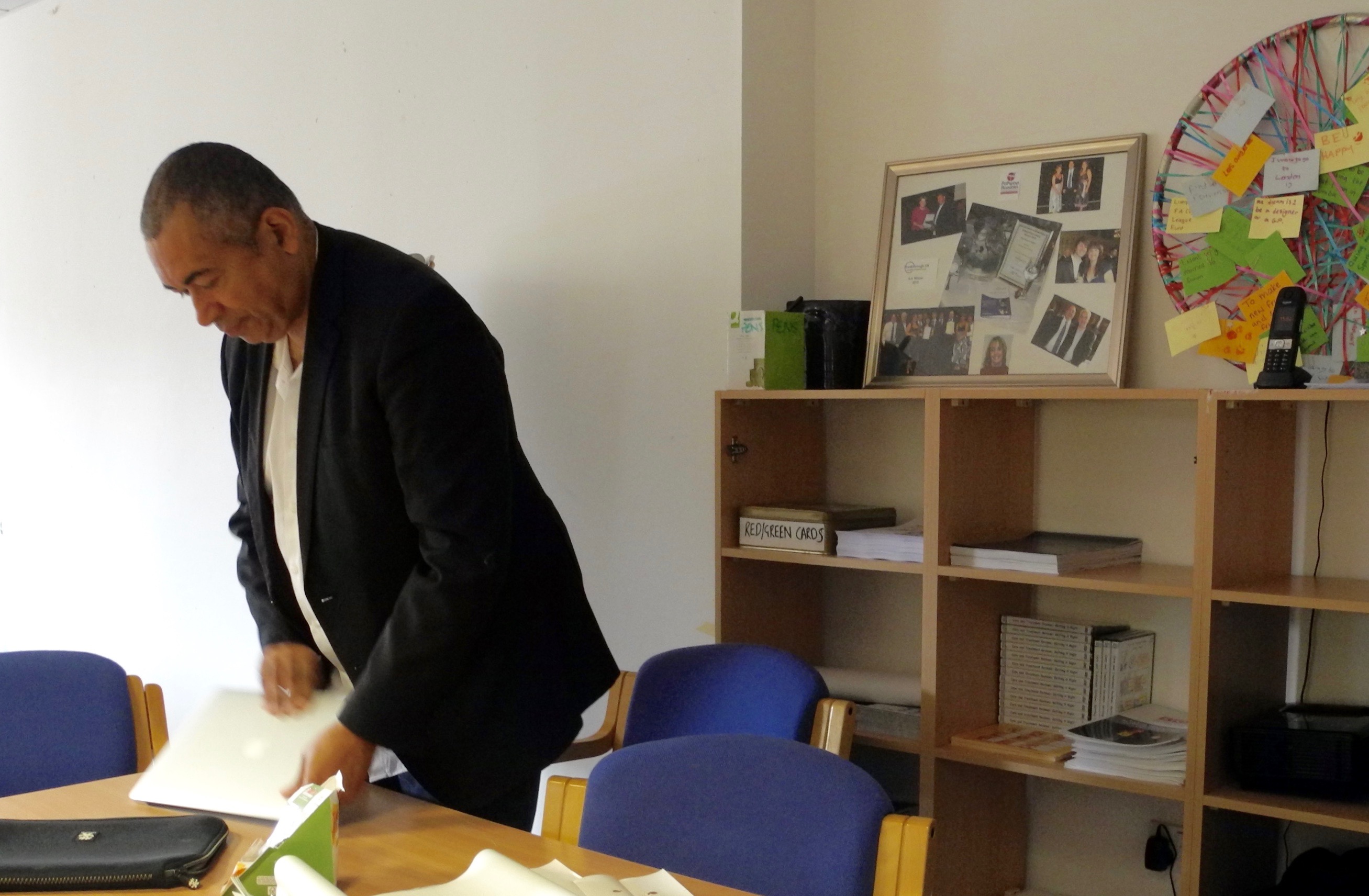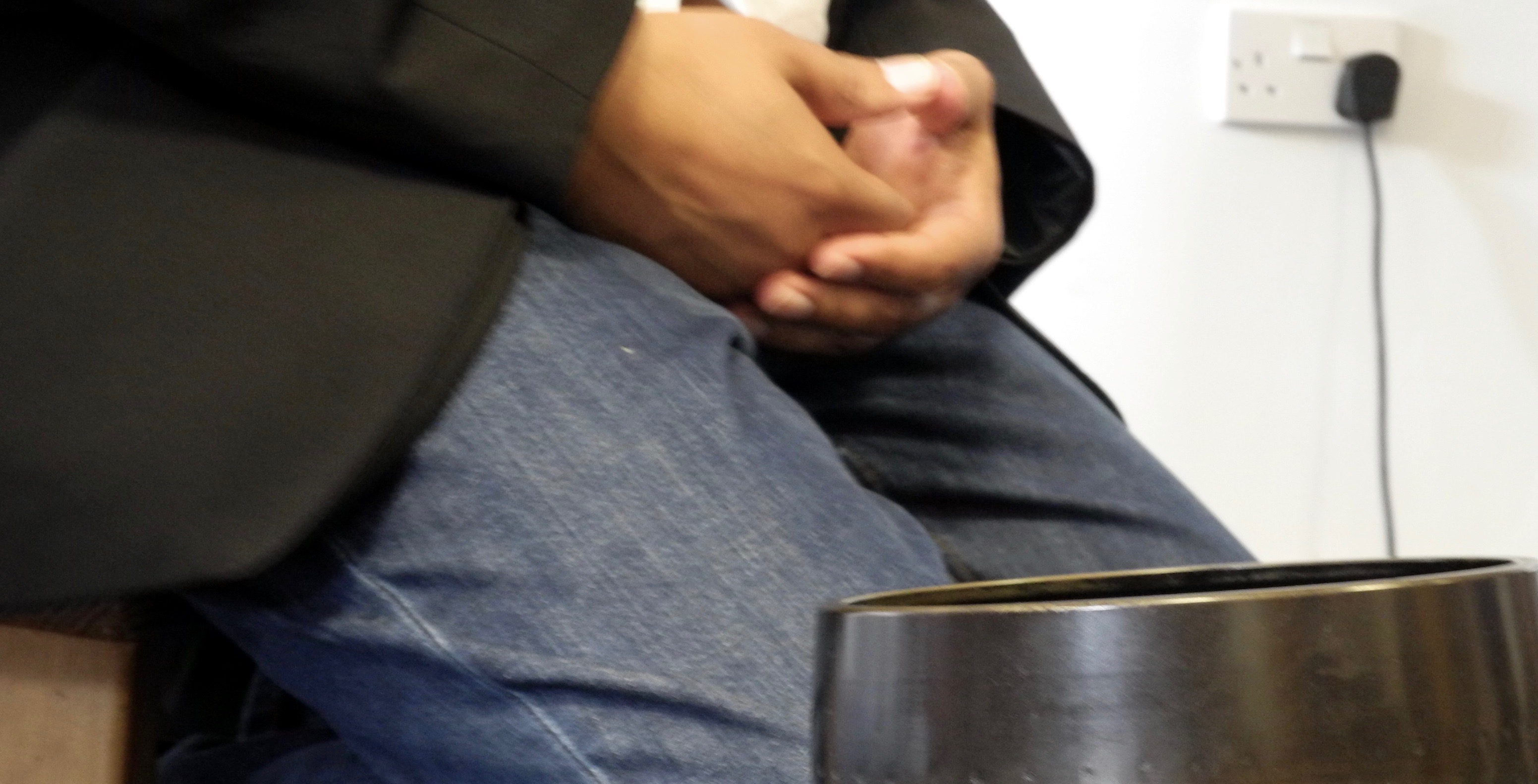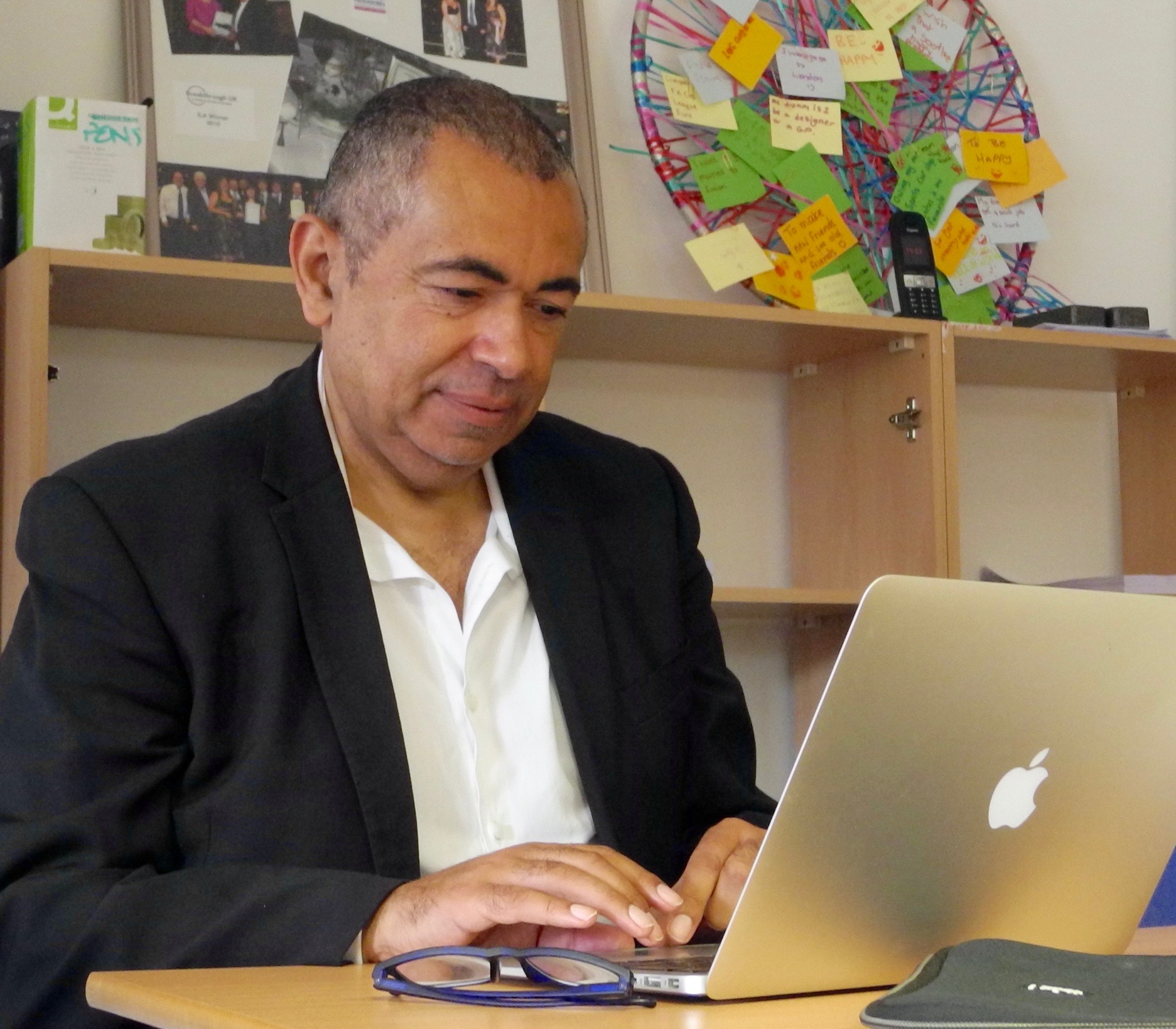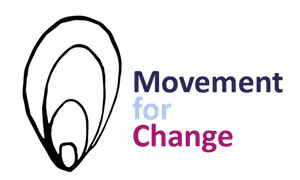
Tell me about your contemplative practice
In the morning I cut out for myself between an hour and two hours of formal practice each day. Sitting still, following the breath. Once I’m in a calm state, I’ll bring something up to contemplate, a situation, a challenge. I’ll look closely, shining the light of mindfulness, in order to reduce the suffering that I have inside me.
Sometimes I’ll get up and I’ll walk slowly. In the Vietnamese tradition I belong to we call it kin hahn – but it’s just slow walking, with my attention on the soles of my feet.
I also do a lot of gratitude practice. I’m quite a visual person, so I’ll actually write down 10 things that I’m really grateful for, it takes a minute or two. I know from experience, when my suffering is down and I’m happier, then the people that I love and work with are happier, too.
And your changemaking practice?
I’m a director and co-founder of a community interest company in the north-west of England to promote full inclusion of people with disabilities in their community. I run regional forums, co-production forums, which help policymakers have the views of people that use their services.
I also work with offenders. I work in high security units quite a bit. I work as a prison chaplain, as somebody that teaches Buddhism to Buddhists. and I also run the mindfulness program that everybody knows about so much now.
How do your practices support each other?
When I turn up at prisons it’s really a challenging environment – and it’s really important that I’m solid and I’m peaceful and I’m awake and I’m calm. So I use walking meditation. I park as far as I can away from the security section, in order to get into prison, and walk very slowly to the prison in order to help my stability.
What I love about working in prisons, and with people with learning disabilities or autism, or both, is that however many courses and qualifications I’ve got, it doesn’t matter there. They can see through you. Words don’t matter too to much people with learning disabilities or to people in prison, because they’ve had words that have meant nothing for so long. If I’m going to teach that stuff, then I need to embody that stuff.
I use the mindfulness bell when I’m practising meditation in the morning, or if I’m on retreat. However when I’m in meetings with civil servants I can’t really take my bell in, because they’ll think I’m a bit weird! So I use other things to be my mindfulness bell. I’ll ensure I have a glass of water in front of me. Then, if irritation and anger, or a closed mind comes up in me – and they often do – then just by reaching out and touching the glass and bring it to my mouth and sipping, it brings me back to my body and brings me back to my breath, and brings me back to equanimity.
Does anything get in the way of your practice?
Me. That’s a short one. Ha!

And what supports your practice?
Being with other like-minded people that walk the walk rather than talk the talk, who actually practise. Choosing and being with people that make my heart sing. That’s simple enough.
What else supports your resilience?
The relationship with nature actually really helps me. I’m really fortunate that about 3 minutes’ walk and I’m on an unspoilt beach with yellow sand and beautiful sea, and I can see hills and woods. Just being able to walk has really nourished me. And laughter’s really important, and being childish. I still love football.

What brought you to your practice?
I was in my early 30s. I had a bit of a temper, and my wife, she takes no prisoners. We used to have real humdingers of arguments, and there was this one occasion when we were going at it, both in fifth gear – and I remember looking down and seeing this three-year-old child looking up at me, who was my daughter.
I felt, ‘This can’t go on’. And that was it. I had a friend who is a solicitor and she was in exactly the same boat and she said, ‘Oh, I tried this meditation stuff’. So I went along and tried this thing, and it was cool, and I calmed down a bit. Then I went to a Buddhist group and did a six week Buddhist course, and the rest is history.
What have you learned about changemaking?
I think having passion about injustice is one thing, but I don’t believe that passion and skill and intellect is enough. There has to be compassion in your heart, and understanding the nature of interbeing, that everything is everything else, to effect change in a sustainable way. We have to do it with deep looking.
When I’ve contemplated things on a wider scale, there’s a recognition that my heart must have a massive amount of equanimity, love, compassion and understanding alongside the skills and expertise that I’ve gained over the years, and the passion that I still have in my body to effect change. You can’t do it on passion alone.
What are your hopes for the future?
I’d like to see more mindfulness in prisons. Giving people tools to get out of the suffering they’re in, and peace while they’re in really difficult environments. Along with the staff as well. I’d like Pathways to continue. And I’d like to spend a lot more time on the cushion.
